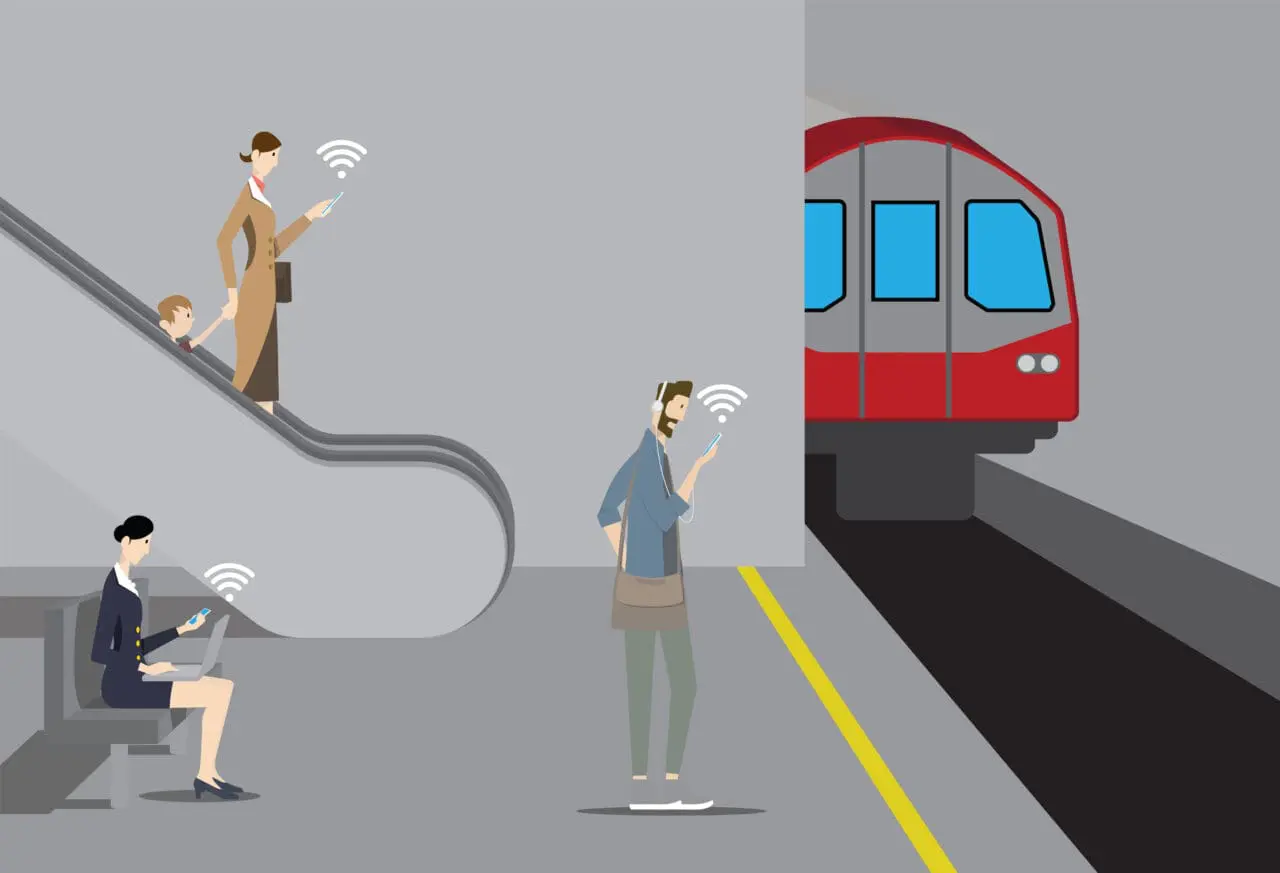

Vodafone and Virgin Media O2 have announced that their customers will be joining both Three and EE’s customers in having access to high-speed mobile connectivity on London’s Tube network, including within the tunnels.
As confirmed by Sadiq Khan, the Mayor of London, Vodafone, and Virgin Media O2 have joined BAI Communications’ 4G and 5G-ready mobile network, meaning that all four mobile network operators are now offering mobile connectivity across the London Underground. In June last year, Transport for London (TfL) awarded a 20-year concession to BAI Communications (BAI) to enable mobile coverage on the whole Tube network by 2024, which, up until now, has been one of the most high-profile UK mobile ‘not-spots’. BAI is a leading global provider of 4G and 5G connected infrastructure, which has already deployed communications networks in dense urban environments across the world, including New York, Toronto, and Hong Kong.
4G mobile coverage has already been introduced to the eastern half of the Jubilee line. Work is currently underway to deliver 4G and 5G connectivity across the whole Tube, with the first stations being Oxford Circus, Tottenham Court Road, Euston, Bank and Camden Town, all due to go live by the end of this year.
BAI says its concession will provide a backbone of mobile and digital connectivity across London. The intention is to run 2,000 kilometres of high-capacity full fibre cabling through London’s Tube tunnels which can be connected to buildings, street lighting, and bus stops. BAI also says that such a network could deliver “gigabit-capable speeds” and support digital inclusion.
Vodafone, which made itself unpopular with Tube travellers back in June 2021 by withdrawing its free Wi-Fi from the Underground network, said about joining BAI’s Underground 4G network: “The UK needs world class digital infrastructure, and bringing 4G and 5G to the London Underground is a big part of that. 4G on the eastern stretch of the Jubilee line is already making a huge difference to our customers. We’re proud to continue our investment in keeping consumers and businesses connected across more parts of London” (Ahmed Essam, CEO).
O2 / VMO2’s CEO, Lutz Schüler, said: “With our 5G network already reaching two-thirds of Londoners, this investment will bring next-generation mobile connectivity deep underground for the first time ever, giving our customers a seamless service while on the move. We’ve already invested hundreds of millions of pounds in the capital to expand and upgrade our fixed and mobile networks which has accelerated London’s transformation into a cutting-edge digital hub, fuelling growth and connecting communities to gigabit services.”
It has been frustrating to Londoners (and visitors) for such a long time that a major transport network in the capital has been a ‘not-spot,’ and Vodafone’s withdrawal of free Wi-Fi there last year added to that frustration. The tunnels are probably ideal for spreading a fibre network across the city. Businesses and home users will now be pleased that this is finally happening, although it will take a couple of years (or possibly longer) to complete across the network area. Mobile and digital connectivity are essential tools for businesses that can help with productivity, competitiveness and growth, so with all four mobile network operators on board with BAI, things look promising going forward.
This website uses cookies to improve your experience. Choose what you're happy with.
Required for the site to function and can't be switched off.
Help us improve the website. Turn on if you agree.
Used for ads and personalisation. Turn on if you agree.
This website uses cookies to improve your experience. Choose what you're happy with.
Required for the site to function and can't be switched off.
Help us improve the website. Turn on if you agree.
Used for ads and personalisation. Turn on if you agree.